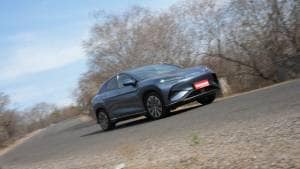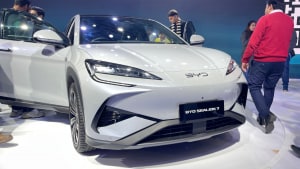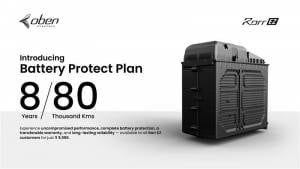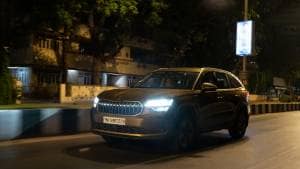Who's winning the lithium-ion battery race? EV battery megafactories compete
Almost a quarter of way into the 21st century, we're witnessing a pivotal moment in the automobile industry, with electric vehicle technology having moved from an uncertainty to a definite reality. Some experts see the global market for EVs exploding, from the two per cent currently, to over 30 per cent by 2030. Notably, India sees a similar forecast but we're far from equipped for it. Of course, at the heart of it is the electricity that's needed to keep these vehicles running. But equally dramatic is the race to manufacture EV batteries to store that energy.
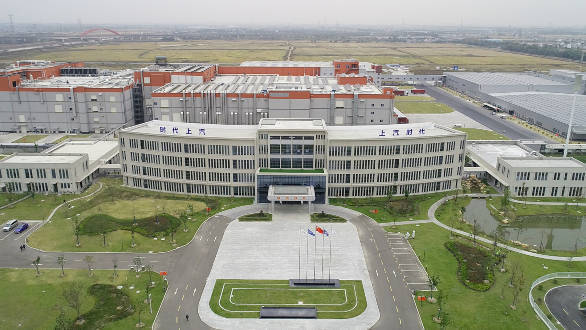
Top 5 Li-ion battery manufacturers by production -
- LG Chem - 51GWh
- CATL - 40GWh
- BYD - 22-24GWh
- Panasonic - 23GWh
- Tesla - 20GWh
CATL (Contemporary Amperex Technology), based in China, is one of the leading battery producers, having made 40 gigawatt hours of lithium-ion battery cells last year, far more than the global production of 29GWh of battery storage across manufacturers as recently as 2016! To put things into perspective, 1GWh is one million kilowatt hours, and most electric vehicles today use between 40-100kWh sized battery packs, meaning one year of LG Chem's battery production could go towards forming the energy storage for up to 51 lakh EVs!
CATL supplies battery packs to manufacturers like BMW, Volkswagen and Nissan in China, apart from SAIC, the parent company to MG Motor India, who will also use CATL-sourced cells in the 44.5kWh battery pack of upcoming MG ZS electric vehicle. CATL has three factories in China currently, and is contemplating more factories in Europe to expand supply to European automobile manufacturers.
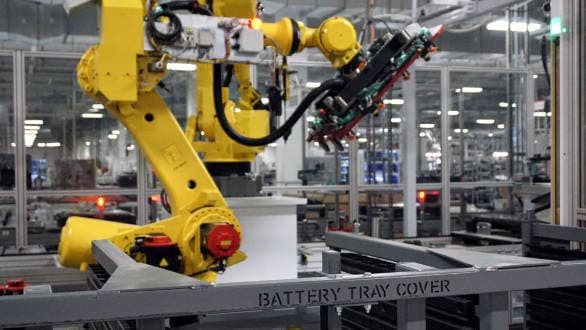
LG Chem, who supplies batteries to companies like General Motors and Volkswagen, stands at around 50GWh of battery production, and is currently the most valuable company in the South Korean LG conglomerate. The company has increased its 2020 production target from 70GWh to 90GWh, indicative of how quick the industry is moving. China's BYD is the number three battery manufacturer, mainly supplying to its own line of EVs and electric buses, with a production of around 20GWh.

Of course, no conversation about battery megafactories is complete without mention of Tesla's Gigafactory 1 producing 20GWh of batteries, set-up between Tesla and Panasonic, and currently operating at less than a quarter of its 150GWh potential. Apart from the two Gigafactories in the US, a third is planned in China, to help Tesla cope with demand for the upcoming China-made Model 3. Panasonic is also looking to setup another independent battery factory to supply manufacturers apart from Tesla.
Currently, the top five battery producing factories are in Asia, and account for over 75 per cent of battery production. In India, only recently have plans been set in motion to set up battery manufacturing plants in the country. Three are planned, by different manufacturers, in Telangana itself with a combined capacity of 10GWh, while one in Kerala has just been announced. As per NITI Aayog, 60GWh is what India will require by 2025 for its EV production.
On the production side of things, there's still a long way to go to transition from fossil-fuel generated electricity to renewable sources. Coal accounts for nearly 40 per cent of the electricity generated globally, with natural gas trailing at around 23 per cent. There's been a drop in nuclear energy produced, while production from renewable sources has gone up to about nine per cent worldwide. India boasts one of the highest shares of renewable energy production, at over 15 per cent, from the likes of biomass, hydropower, solar, wind and geothermal sources. We hope to see this split increase, since over 65 per cent of our electricity production comes from coal.

